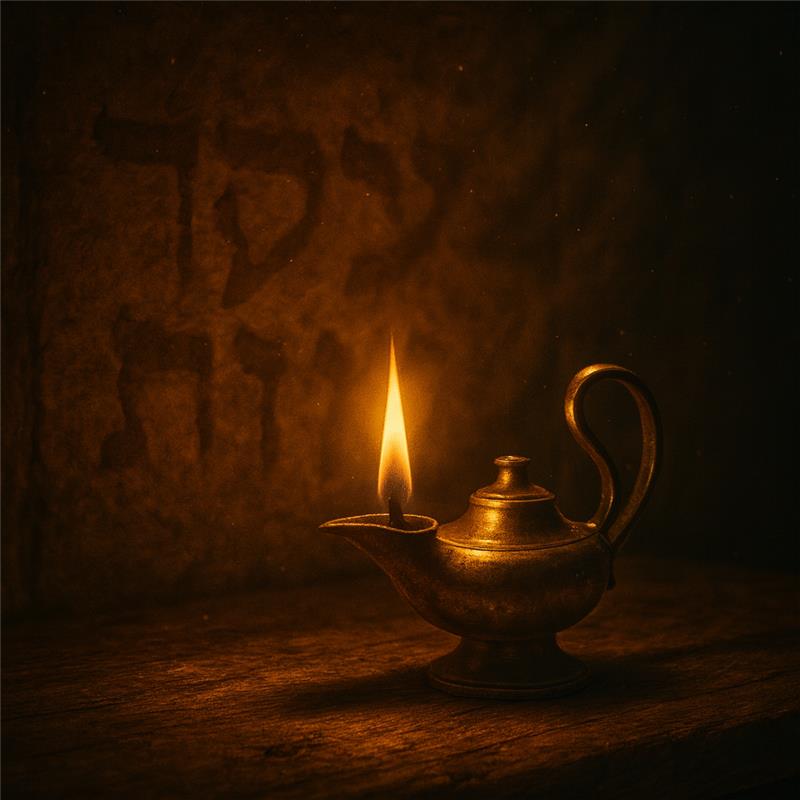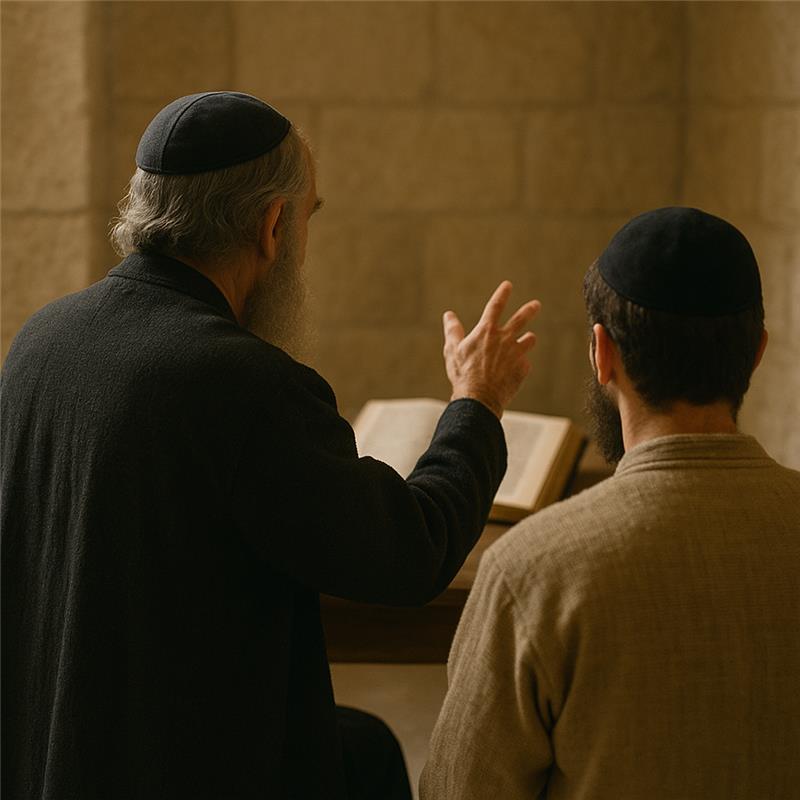Home » About Rabbi Meir » Rabbi meir biography » From Nahori to Meir: Rabbi Meir’s Transformation from Light to Enlightener
The Meir Meaning:
Understanding Name Changes in the Bible Through Rabbi Meir's
Discover how the meaning of the name Meir and Biblical name changes reveal Judaism’s deepest teachings about spiritual elevation from light to greater light
Understanding the Meir Name Meaning and Its Sacred Origins
The Meir meaning reveals one of the Torah’s most important lessons about spiritual growth. The Gemara in Masechet Eruvin (13b) tells us that Rabbi Meir wasn’t born with this special name. The meaning of the name Meir comes from the Hebrew root אור (or), which means “to give light” or “to enlighten.” The Gemara states: “Rabbi Meir was not his name; rather, Rabbi Nehorai was his name. And why was he called Rabbi Meir? Because he illuminates [Meir] the eyes of the Chachamim (Sages) in matters of Halacha (Jewish law).”
This transformation stands among the most important name changes in the Bible and Jewish tradition. The Meir name meaning literally translates to “one who gives light” or “מאיר” – enlightener, capturing Rabbi Meir’s special gift for explaining difficult Torah concepts. The same Gemara in Eruvin (13b) notes that his colleagues “could not reach the depths of his thinking.” He had the amazing ability to give forty-eight reasons why something was tahor (ritually pure) and another forty-eight reasons why it was tamei (ritually impure).
The Power of Sacred Name Changes
This journey—which we call the darkness to light meaning in its deeper sense—shows how Torah study changes not just what we know but who we are. Rabbi Meir Baal Haness went from someone who had light within to someone who actively shared that light with the world.
The Hebrew Meaning of Nahor and Nehorai's Mystery
The Hebrew meaning of Nahor provides deeper insight into Rabbi Meir’s transformation. His original name “Nehorai” (נהוראי) means “light” in Aramaic, which creates an interesting question. Some Torah scholars connect this to the Nahor name meaning found in the Torah. The biblical name Nahor (נחור) in Hebrew can mean “burning” or “intense heat,” suggesting passionate fire.
This complexity in the Nahor name meaning raises a fascinating point: If Nehorai already means “light,” why did he need to become Meir, “enlightener”? The answer shows that the darkness to light meaning here isn’t about going from no light to having light. Instead, it’s about rising higher—from having light to sharing it, from personal brightness to lighting up others. Think of it like a candle that first needs to be lit before it can light other candles.
Share Your Light With Others
Old manuscripts show different versions of his original name, with some texts writing “Me’asha” instead of Nehorai. This adds more mystery to the Hebrew meaning of Nahor and its connection to Rabbi Meir’s origins. What we know for sure is that Rabbi Meir’s transformation shows how dedicated Torah learning can change a person’s spiritual essence.
Abraham in the Bible Name Change and Sacred Examples
The Abraham in the Bible name change gives us the first major example of spiritual transformation through meeting Hashem. When our forefather Avram was ninety-nine years old, Hashem changed his name from Avram (אברם – “exalted father”) to Avraham (אברהם – Abraham, “father of many nations”). This change marked his growth from leading one family to becoming the father of Am Yisrael (the Jewish people).
At the same time, the transformation from Sarai to Sarah took place. Sarai (שרי – “my princess”) became Sarah (שרה – “princess”). The sarai to sarah change removed the word “my,” showing that she would be a mother to all nations, not just one family. Both received the Hebrew letter ה (heh) from Hashem’s own name, adding divine essence to their identities. These name changes in the Bible happened with the bris milah (covenant of circumcision), connecting new names to holy covenant moments.
Some Torah Name Changes and Their Meanings
- Avram → Avraham (Abraham): From “exalted father” to “father of many nations”
- Sarai → Sarah: From “my princess” to “princess of all”
- Yaakov → Yisrael (Jacob to Israel): From “heel-holder” to “one who wrestles with God”
- Hoshea → Yehoshua (Joshua): From “salvation” to “God is salvation”
- Nehorai → Meir: From “light” to “enlightener”
Comfort
$100
Live
$180
Salvation
$391
Nation
$669
Hebrew Names That Mean Light in Jewish Tradition
- Uriel (אוריאל) – “God is my light” or “fire of God” – mentioned in Divrei HaYamim (Chronicles)
- Uri (אורי) – “my light” – father of Bezalel who built the Mishkan
- Neriah (נריה) – “lamp of God” – father of Baruch the scribe in Yirmiyahu (Jeremiah)
Bring Light to Torah Families
In chinuch (Jewish education), the journey from darkness to light goes beyond simple metaphors. The pasuk (verse) in Mishlei (Proverbs 6:23) teaches, “כי נר מצוה ותורה אור” (Ki ner mitzvah v’Torah or – “For a commandment is a lamp, and Torah is light”). This shows that Torah study is the main way to bring spiritual light into the world. The meaning of the name Meir proves this principle—Rabbi Meir showed that through serious learning, a person goes from receiving light to giving it.
Rabbi Meir used special teaching methods to show truth from different angles. He didn’t just share facts but lit up entire Torah concepts. His talmidim (students) learned that real wisdom comes from working through difficult questions, just as the Jacob to Israel transformation came from wrestling with the malach (angel).
Name Changes in the Bible Show Spiritual Growth
Looking at name changes in the Bible reveals how meeting the divine changes who we are. From the Abraham in the Bible name change to the Jacob to Israel transformation, the Torah shows that encountering Hashem fundamentally changes a person’s identity. Rabbi Meir’s journey from Nehorai to enlightener fits perfectly into this Biblical pattern.
The Sarai to Sarah transformation teaches that name changes expand a person’s spiritual mission. Sarah’s new name came with Hashem’s promise that she would become “em goyim” (mother of nations), with “melachim amim mimenah yihyu” (kings of peoples shall come from her). Similarly, Rabbi Meir’s new name showed his expanded role as teacher and light-giver for all future generations of Torah scholars.
When we understand the Meir meaning alongside these Torah examples, we see that sacred name changes are real transformations, not just symbols. What we call the darkness to light meaning really describes rising higher in kedusha (holiness) through Avodas Hashem (divine service).
The Deeper Darkness to Light Meaning in Torah Learning
In chinuch (Jewish education), the journey from darkness to light goes beyond simple metaphors. The pasuk (verse) in Mishlei (Proverbs 6:23) teaches, “כי נר מצוה ותורה אור” (Ki ner mitzvah v’Torah or – “For a commandment is a lamp, and Torah is light”). This shows that Torah study is the main way to bring spiritual light into the world. The meaning of the name Meir proves this principle—Rabbi Meir showed that through serious learning, a person goes from receiving light to giving it.
Rabbi Meir used special teaching methods to show truth from different angles. He didn’t just share facts but lit up entire Torah concepts. His talmidim (students) learned that real wisdom comes from working through difficult questions, just as the Jacob to Israel transformation came from wrestling with the malach (angel).
Rabbi Meir's Three-Part Teaching Method
Rabbi Meir's transformation teaches that learning changes who you are. Just as name changes in the Bible marked meetings with Hashem, Rabbi Meir's change shows that deep Torah learning is its own way of meeting the Ribbono Shel Olam (Master of the Universe).
Living the Meir Meaning Today
The Meir meaning provides guidance in our own spiritual journeys. Rabbi Meir’s transformation shows that our identity isn’t fixed at birth. Like the Abraham in the bible name change and the Jacob to Israel journey, we can transform ourselves through dedicated Torah study and teaching.
When parents choose Hebrew names that mean light for their children, they join this ancient mesorah (tradition). Whether selecting names like Uriel or researching the meaning of the name Meir, they connect with thousands of years of Jewish hopes and dreams. Each name with light in it represents hope for growth and wisdom.
Transform a Life Today
Bringing the Meir Meaning to Life Through Rabbi Meir Baal Haness Charities
For over 200 years, Rabbi Meir Baal Haness Charities has supported Torah scholars, almanos (widows), yesomim (orphans), and poor families throughout Eretz Yisroel. Founded in 1799, our organization continues Rabbi Meir’s promise to be an advocate in Shamayim (Heaven) for those who give tzedakah to the poor of Israel in his memory. Just as the Meir meaning represents sharing divine light, your support brightens the lives of those dedicated to Torah study.
When you give to Rabbi Meir Baal Haness Charities, you join in the transformative journey that the darkness to light meaning represents. Your donation helps talmidei chachamim (Torah scholars) continue their studies without financial worry, ensures that widows and orphans receive help with dignity, keeping the light of Torah shining throughout Eretz HaKodesh (the Holy Land). In the merit of Ra
Transform Lives Through Biblical Name Changes
Frequently Asked Questions About the Meir Meaning and Biblical Name Changes
What is the Meir name meaning and why does it matter?
The Meir meaning comes from the Hebrew root אור (or) meaning “to illuminate” or “enlighten.” The meaning of the name Meir translates to “enlightener” or “one who gives light.” The Gemara in Eruvin (13b) clearly states that Rabbi Meir received this name because he “illuminated the eyes of the Chachamim (Sages) in matters of Halacha.” This represents one of Judaism’s most important spiritual transformations, matching the name changes in the Bible of Avraham and Yaakov.
How does Rabbi Meir's transformation compare to name changes in the Bible?
Rabbi Meir’s transformation follows the Torah pattern of sacred name changes. Like the Abraham in the bible name change (from Avram to Avraham at age ninety-nine), the Sarai to Sarah transformation, and the Jacob to Israel journey after wrestling with a malach (angel), Rabbi Meir’s new name marked major spiritual growth. These name changes in the Bible show that encounters with the divine—whether through nevuah (prophecy) or deep Torah study—can transform our essential nature. Each represents the darkness to light meaning of advancing in ruchniyus (spirituality).
What is the Hebrew meaning of Nahor and how does it connect to Rabbi Meir?
The Hebrew meaning of Nahor and Nahor name meaning carry complex meanings. While Rabbi Meir’s original name “Nehorai” (נהוראי) means “light” in Aramaic, some scholars connect it to the biblical Nahor (נחור), which can mean “burning” or “scorched” in Hebrew. This reveals that the darkness to light meaning isn’t literally from darkness to light, but rather elevation from having light to actively giving it. The Meir meaning thus represents going from personal light to enlightening others.
What are other Hebrew names that mean light besides Meir?
Many Hebrew names that mean light share Rabbi Meir’s luminous theme. Names with divine light meanings include Uriel (אוריאל – “God is my light”), Eleora (אלאורה – “God’s light”), and Neriah (נריה – “lamp of God”). Other Hebrew names that mean light include Or (אור – “light”), Lior (ליאור – “light for me”), Zohar (זוהר – “radiance”), and the feminine forms Ora and Orit. Each name represents hope that the bearer will embody the darkness to light meaning, bringing divine wisdom to the world. Explore more in our article about The Power of Names.
How can understanding the Meir meaning help our spiritual growth today?
Understanding the Meir meaning reveals that spiritual identity can always grow and change. Like the Abraham in the Bible name change and Jacob to Israel transformation, we can fundamentally change through dedicated Torah learning and teaching. The darkness to light meaning shows that by supporting Jewish education—such as through Rabbi Meir Baal Haness Charities, serving Israel’s poor since 1799—we participate in bringing light to the world. In the merit of Rabbi Meir Baal Haness, may we all become sources of light in our communities.

 The Power of Names
The Power of Names Rabbi Akiva’s Star Student
Rabbi Akiva’s Star Student Hidden Meanings: Gematria
Hidden Meanings: Gematria
 Too Brilliant for Halacha
Too Brilliant for Halacha
 We can light a candle on your behalf at Rebbe Meir's Holy Tomb.
We can light a candle on your behalf at Rebbe Meir's Holy Tomb. 